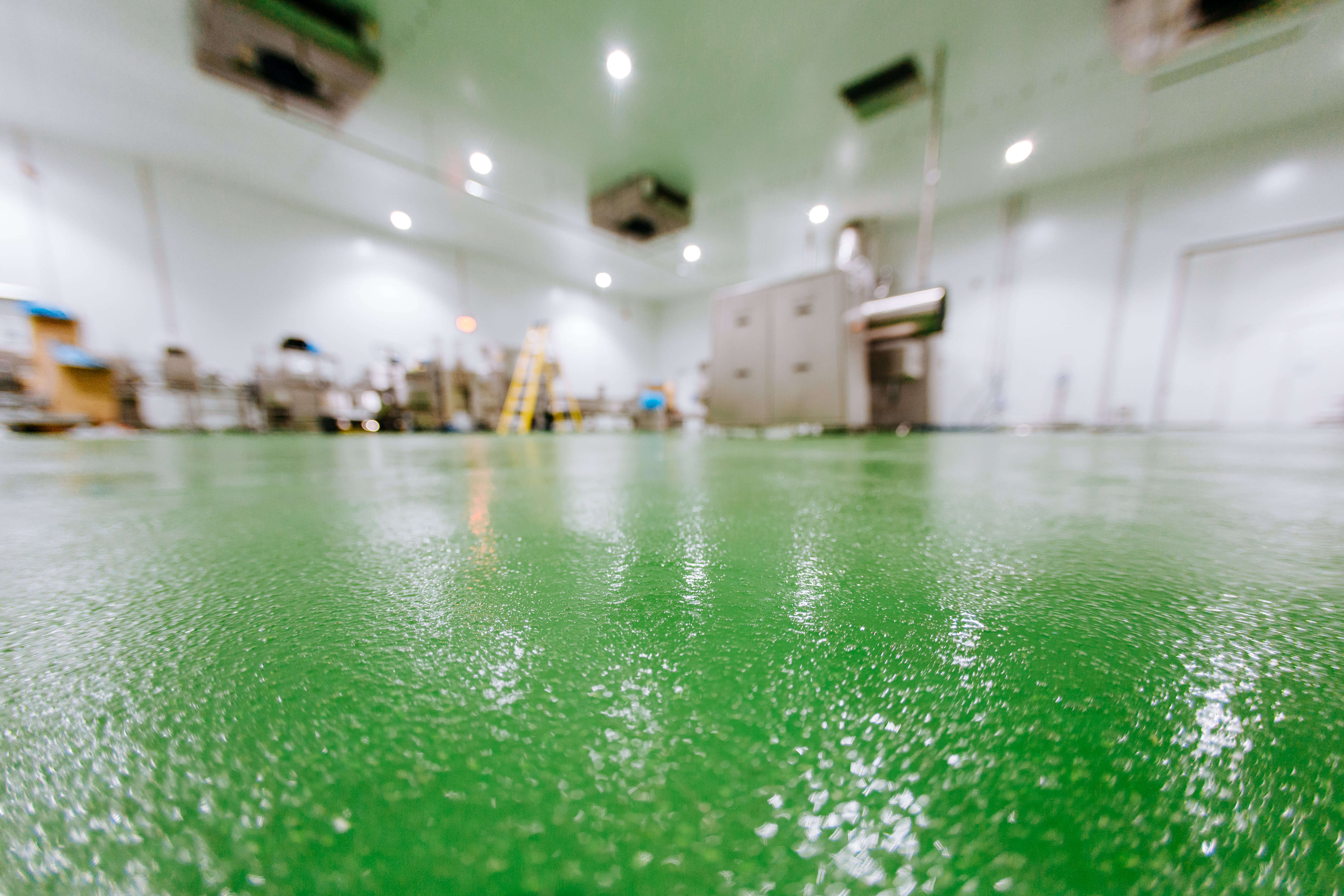What is Screed?
26
Jun
Posted by Northern Star Flooring No Comments on What is Screed? News
What is Screed?

Screed is a commonly used under-flooring layer in commercial and industrial workplaces. It serves as a sturdy base for the final flooring layer. It is a mixture of cement and sharp sand that is placed on top of a concrete subfloor to provide a solid and smooth foundation for your final flooring finish. It is level and smooth enough that some warehouses leave the screed bare to perform as the finish itself.
How is screed different from concrete?
Although concrete and floor screed are both made from a mix of cement and water, they serve different purposes.
Concrete has a coarser consistency and is mainly used in industry for its strength.
Screed is much smoother and is usually applied on top of concrete slabs to assist in the quality of the final flooring layer.
What are the different types of screed?
At Northern Star Flooring, we create bespoke screed mixtures to fit your specific flooring needs and requirements. Generally, floor screed comes in three different types. These are bonded, unbonded and floating screed.
Bonded screed
Bonded screed is applied directly to the concrete base which is bound together using strong bonding agents. This is ideal for projects where heavy loading is common such as driveways and car parks.
Unbonded screed
A layer of unbonded screed can be placed on top of a damp-proof membrane. As unbonded screed is thicker it doesn’t require an adhesive. The main benefit of an unbonded screed is that you don’t have to worry about movement or cracking.
Floating screed
Floating screed is used as a floating layer of insulation material, such as for underfloor heating. It is ideal for eliminating drafts, creating moisture barriers and preventing pipes from freezing.
How to choose the correct flooring screed?
The difference between polyurethane and epoxy is that epoxy is harder and offers slightly more impact resistance. Polyurethane is more scratch resistant and offers flexibility that can prevent concrete cracks from spreading through the coating.
Heavy-duty polyurethane screed:
Polyurethane resin screed also known as ‘PU flooring’ is often installed in sensitive environments, such as the Food and Drink Industry. PU flooring is heavy-duty, chemical resistant, anti-slip and flexible.
Epoxy resin self-levelling screed:
If you have an uneven concrete floor, consider using Epoxy Levelling Screeds to smooth it out. These screeds have a high-shine finish that looks great in showrooms, offices, retail spaces, and production facilities.
Polyurethane self-levelling screed:
Polyurethane self-levelling screed falls between an epoxy floor coating and a heavy-duty polyurethane screed, making it a versatile option. Because it’s made of polyurethane, it’s resistant to chemicals and abrasions. Additionally, its fluid and self-levelling nature makes it easier to clean, especially when it’s sealed with a water-based epoxy coating.
If you need further details about flooring screed and identifying the best option for your business, please don’t hesitate to contact our friendly team on 01482 738044.










Recent Comments